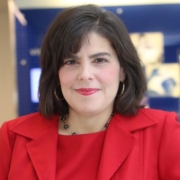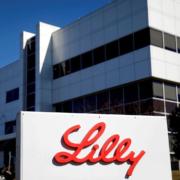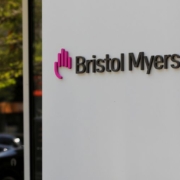Companies bank on psychedelics as treatments for mental health disorders
Companies bank on psychedelics as treatments for mental health disorders
Published: May 15, 2023
By Joanna Smiley
BioSpace
The coming years could see a massive shift in the U.S. government’s approach to regulating hallucinogenic drugs. Several biopharma companies are developing psychedelics-based treatments for various mental health conditions, and in 2017 the FDA granted breakthrough status to psychedelic-assisted therapies using both MDMA (ecstasy) for the treatment of post-traumatic stress disorder and psilocybin (the active ingredient in “magic” mushrooms) for patients with depression. Should the agency greenlight these products, they could become much easier for researchers, and possibly patients, to access.
MDMA and psilocybin, along with other hallucinogenic drugs, have long been listed as Schedule I drugs, which the U.S. Drug Enforcement Administration (DEA) defines as “drugs, substances, or chemicals with no currently accepted medical use and a high potential for abuse.”
But “when a Schedule I drug is approved for treatment by the FDA, the DEA is required to reschedule that particular formulation within 90 days,” Betty Aldworth, director of communications and marketing at the nonprofit Multidisciplinary Association for Psychedelic Studies (MAPS), told BioSpace.
That doesn’t mean the U.S. government will deregulate these drugs altogether, she added. It’s possible that the DEA will simply delist only those formulations approved by the regulator.
“For example, while the FDA has authorized the prescription use of cannabis-derived drugs, marijuana itself remains a Schedule I drug,” Aldworth said. Nevertheless, such approvals could set a precedent for other companies working to bring psychedelics-based treatments to the market.
The U.S. government has stated that it is open to exploring these drugs as medicines. In 2022, The Intercept published a letter from Miriam E. Delphin-Rittmon, administrator of the Substance Abuse and Mental Health Services Administration, that read, “too many Americans are suffering from mental health and substance use issues, which have been exacerbated by the ongoing COVID-19 pandemic, and . . . we must explore the potential of psychedelic-assisted therapies to address this crisis.”
Meanwhile, a flurry of state legislative reforms regarding psychedelic drugs have been introduced throughout the U.S.
Even with this momentum behind the therapeutic psychedelics movement, Aldworth notes that the current economic situation remains uncertain at best, and the neuropsychedelics space will face the same challenges as the rest of biopharma. Indeed, she said she’s already seeing some psychedelic startups that have less cash on hand and face layoffs or treatment clinic closings.
Nonetheless, Aldworth said recent clinical data shows the science behind these psychedelic drugs has never been better and that she believes the industry is poised to explode. Even as companies await the regulatory fate of MDMA and psilocybin, several psychedelic companies are reporting strong growth.
According to a report by market research and consulting firm InsightAce Analytic, the psychedelic therapeutics market will be worth an estimated $8.31 billion by 2028.
A New but Growing Industry
MindMed was the first psychedelics-focused pharmaceutical company in the U.S. to go public, launching in 2019. On April 14, shares of MindMed surged after the company unveiled positive results from a Phase II trial testing LSD (colloquially known as acid) as a treatment option for people living with major depressive disorder (MDD). The NIH estimates that 21 million adults in the U.S. live with MDD. At least 10% of Americans will experience MDD at some point in their lives and women are twice as likely as men to suffer, according to Stanford Medicine, Genetics of Brain Function.
Robert Barrow, CEO, told BioSpace that MindMed manufactures a proprietary form of LSD used in its trials in MDD as well as generalized anxiety disorder (GAD) and will soon release a proof-of-concept study that will show how low, repeated dosages of LSD can help treat patients living with ADHD.
“Almost every single person in our company . . . has been impacted by the mental health epidemic that’s been trending in the wrong direction for so many years,” Barrow said. One of the company’s goals is to reposition this drug that has been outlawed for years as a powerful medicine for various psychiatric disorders, he added.
Meanwhile, Small Pharma announced positive top-line results in January from a Phase IIa trial of DMT, the first placebo-controlled efficacy study exploring a short-duration psychedelic for the treatment of MDD. The company is now planning new studies, including a Phase I trial comparing DMT with selective serotonin reuptake inhibitors (SSRIs), commonly prescribed antidepressants.
While MindMed and Small Pharma are two of the more established companies in this space, several startups are also making inroads. In Nov. 2022, Sensorium Therapeutics raised $30 million in a Series A financing to develop psychoactive molecules for neuropsychiatric diseases. The following month, COMPASS Pathways announced that COMP360, a synthetic form of psilocybin, demonstrated an 86% remission rate in patients with type II bipolar disorder.
Psilocybin treatments are at least a couple of years away, however, Aldworth noted.
“The most advanced psilocybin-assisted therapy treatments are currently in the beginning stages of Phase III research, so it is unlikely that the FDA will evaluate the treatment for approval before 2025,” she said.
Potentially more near-term are MDMA-based treatments. In 2021, MAPS completed a Phase III clinical trial that reported positive results of MDMA coupled with psychotherapy for patients with severe posttraumatic stress disorder (PTSD).
“The trials build on the promising results of MAPS’ completed Phase II clinical trials and are the final phase of research required by the U.S. Food and Drug Administration (FDA) before deciding whether to approve MDMA as a legal prescription treatment for PTSD, required to be used in conjunction with therapy in an outpatient setting with a residential stay,” MAPS stated on its website.
MDMA-assisted therapy may receive FDA approval as soon as 2024, Blair Clark-Schoeb, chief communications officer at MAPS, told BioSpace, noting that MAPS plans to submit its NDA in the second half of this year.
“Thirteen million Americans live with PTSD. That’s just one condition we have the potential to treat with psychedelics,” Aldworth said.
Navigating IP
Patent law is a complex and expensive process for any biotech startup, but especially psychedelic companies, as the drugs they manufacture are still federally illegal substances. But with all that poised to change in the coming years, Paul J. Molino, managing partner at the Chicago-based patent firm RMMS, said at the April 2023 American Association of Pharmaceutical Scientist National Biotechnology Conference that he is anticipating a mad rush by psychedelics companies to secure intellectual property for their treatments.
“Psychedelics work being done for treatment is a gigantic field,” he said. “We have several companies we’re keeping an eye on.”
MindMed’s Barrow said that, clinically, the space is wide open.
“Given the enormity of the need and view of what this drug class could present, there’s a lot of room for many companies to be successful.”
Source: BioSpace


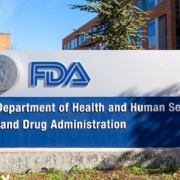
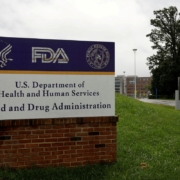
 Reuters
Reuters